Adoption in Islam: There are many couples around the globe, who want to adopt children due to different reasons. However many are not aware of the ruling in Islam regarding adoption. This article will guide you through several points that might be useful if you’re looking to adopt.
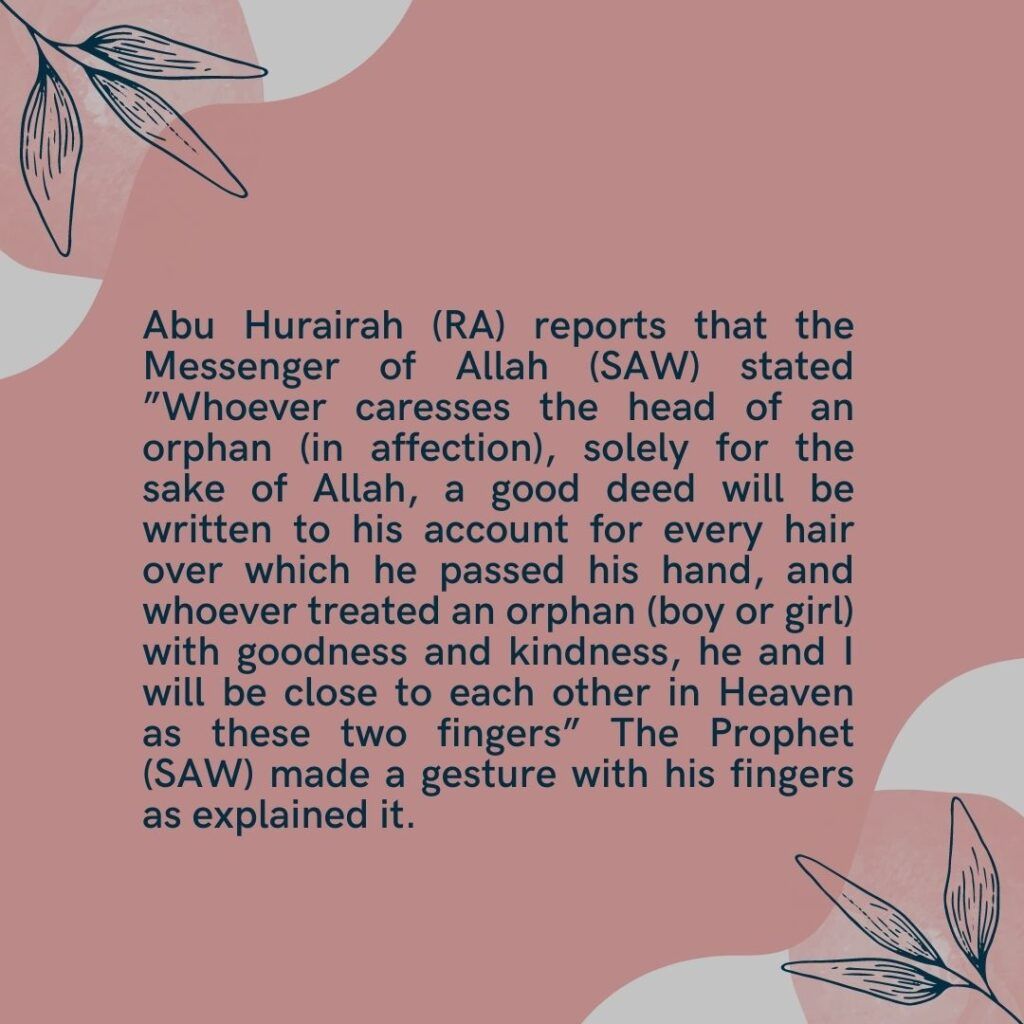
This hadith precisely and beautifully showcases the importance and value of taking care of orphans. The Prophet Muhammed SAWW himself being an orphan, would relate and understand more than anyone else what an orphan experience.
He therefore would understand the utmost importance and goodness of taking care of orphans as they are the most vulnerable of the needy. He adopted a man, Zaid bin Harris RA as his adopted son who he SAWW freed from slavery.
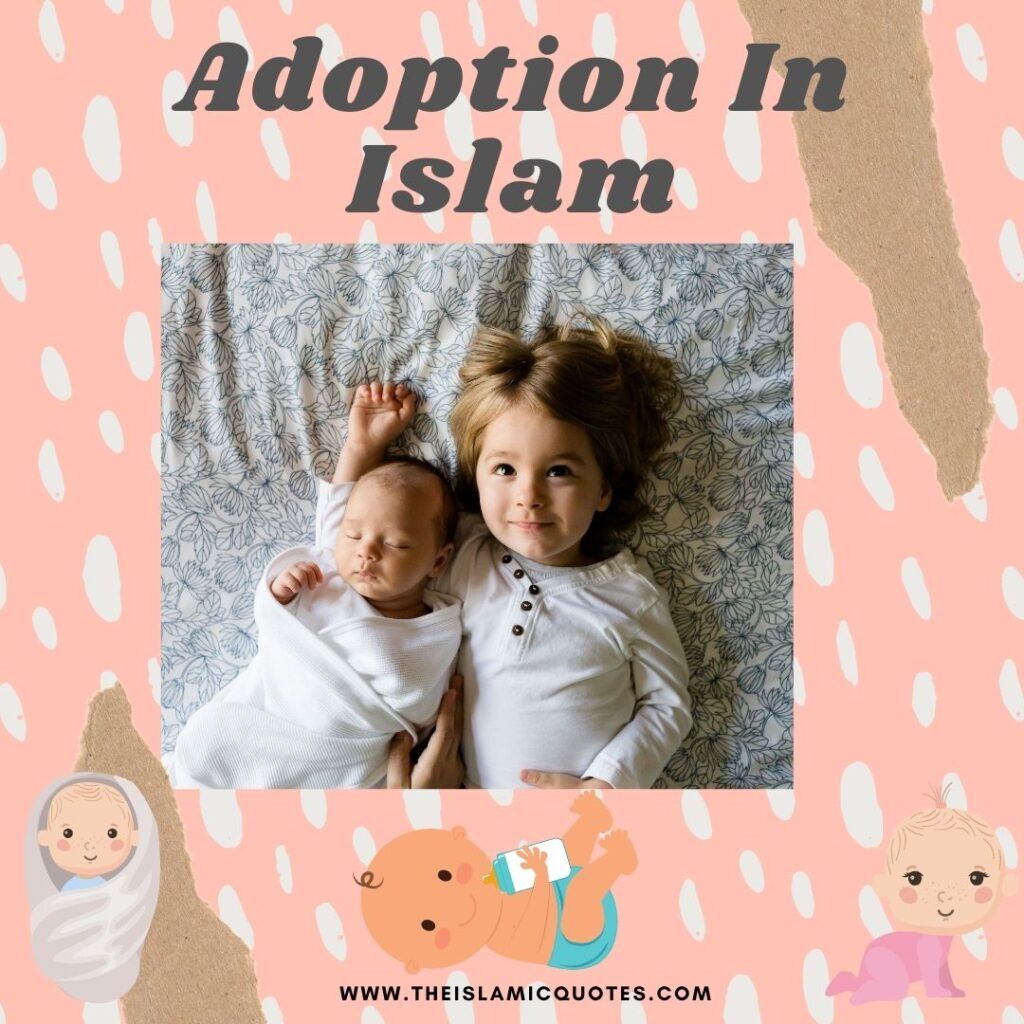
However, Islam lays down some ground rules when it comes to adoption. The Islamic concept of adoption is not like traditional adoptions that are practised and legalized.
But that does not mean in any way that Islam discourages adoptions, nor does it make it a harder process. The aim is to protect the rights and interests of the child in need of care and attention.
1. Fake Identity
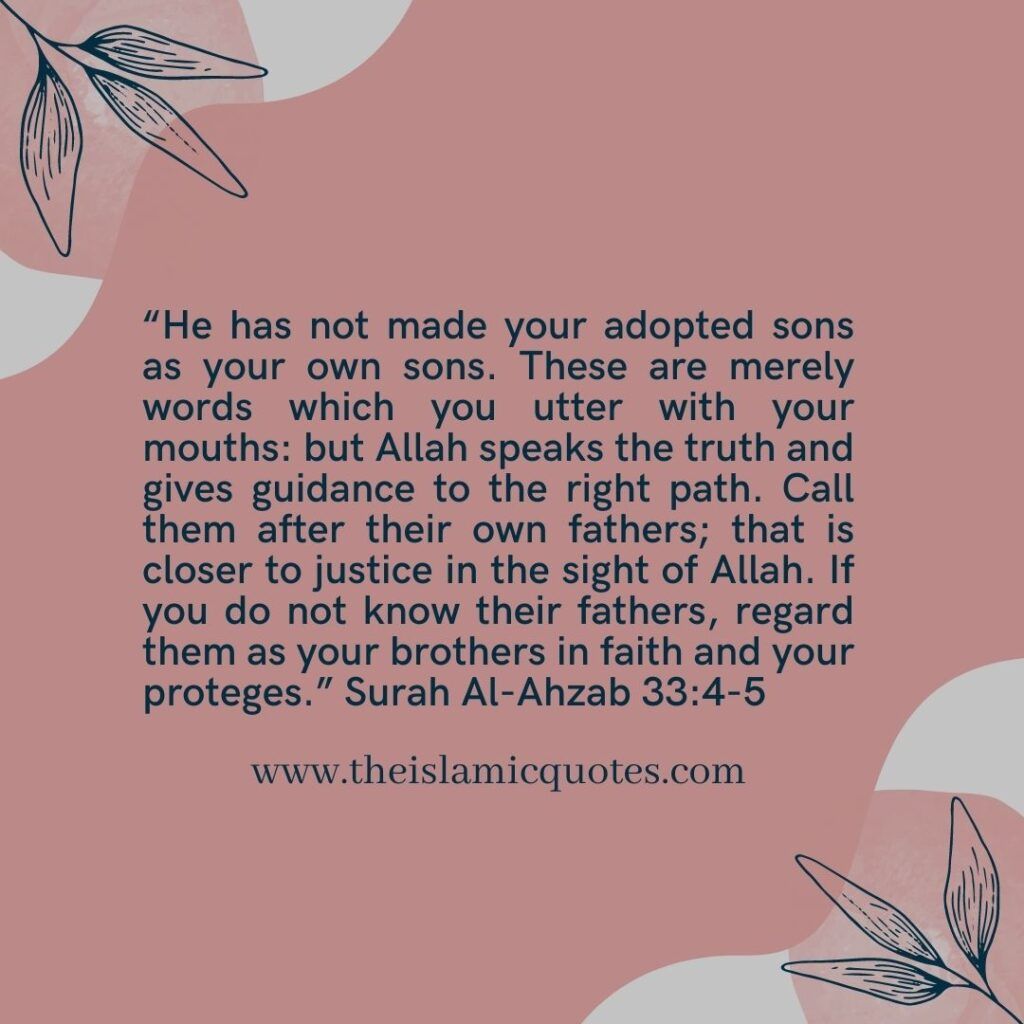
Islamic teachings are not in favor of creating false identities for adopted children under the pretense of shielding the child from a harsh reality. Islam places great importance on preserving and upholding blood ties and bonds. The traditional and mainstream definition of adoption is in direct contradiction to this.
Adoption means voluntarily accepting another as one’s blood and treating them the same as one would their child. The motives for such vary greatly. Some do it for self-preservation, continuing one’s heritage and family name if they don’t have an offspring of their own or denied of a male child. Legitimize children born of illicit relationships to ward off the stigma associated with them.
To be heirs to one’s property and assets. More recently, through the framework of the social welfare system, uphold the welfare of children who are deprived of a healthy home environment.
The purpose and practice of this adoption system are to ultimately relinquish the duties and rights of the biological parents to the adopted parents. It is effectively breaking blood ties and constructing them a new. It is common to adopt kids as infants and raise them without informing them about their actual blood relatives and biological parents.
Islamic principles completely go against this and advise and guide to inform the child of their true heritage and bloodline. It has been observed that this is better for the mental health and overall growth of the child. It teaches him/her to respect and value his/her identity and what he/she is provided.
When done tactfully, it avoids the awkwardness and problems associated with later on in life where the child is forced to acknowledge his true parentage. This most definitely takes a toll on the growth and health of the person. I also recommend that you go through these 100+ Islamic Marriage Quotes For Husband and Wife.
2. Kafala: Foster Parents
In simple terms, Islam law rejects adoption and uses the concept of kafala. It means “to feed” and describes more of a foster parent relationship. A foster parent merely acts as trustees for the biological parents and do not replace their position or act as a substitute for true kinship.
The role of foster parents is to provide for the foster child and fulfil all of his basic needs and give him proper Islamic education and give an Islamic identity. Every child is born a Muslim so this is considered a compulsory duty.
They are required to give the foster child an appropriate upbringing or tarbiyah. This would be the same as they would with their biological children. When they grow up they have to get them married to suitable spouses as they are their responsibility.
3. Modesty
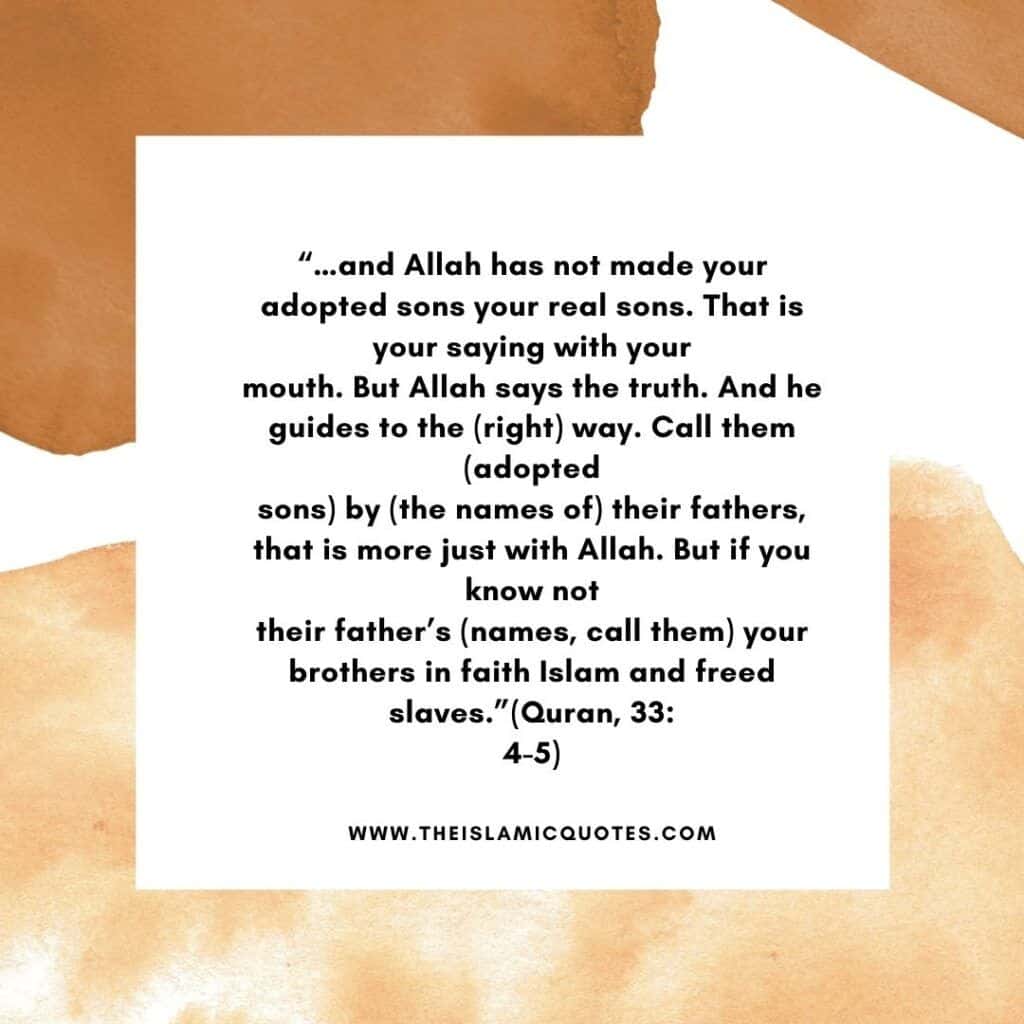
The problem of modesty is where a lot of issues arise and makes the difference between Islamic foster-hood and traditional adoption light and day. Unlike adoption practice and culture, the foster male child in Islam is not mahram to his foster mother and foster sisters. And vice-versa, the foster female child is not mahram for her foster father and foster brothers if any.
The child should be educated about these ethical and moral boundaries at an early age. They should also practice the boundaries of modesty when dealing with relatives as they are effectively strangers.
The recommended way to help with this issue is to breastfeed the adopted infant child before he is 2 years old. This way he/she can be included in the mahram.
The adopted son cannot marry the woman who breastfed him. Vice-versa the adopted daughter cannot marry the man if his wife breastfed her. The adopted child also cannot marry the children of their adopted parents. The extended family and relatives of adopted siblings and adopted parents then become their relatives.
4. Financial Rights and Duties of Adopted Children in Islam
Financial rights is another area that needs much attention and care when it comes to foster or adoptive children. Even though it is greatly encouraged to spend on the orphans but if you are fostering them, then they should not be treated any different than one’s biological child.
However, when it comes to inheritance, it is emphasized that foster or adopted children have no claim to the inheritance of their adopted parents at the time of demise. Therefore, parents are advised to write a will up to ⅓ of their property in favor of their adopted child. This also considered to be a rewarding good deed if done.
The guardian or adoptive parent can also give financial inheritance in the form of gifts in their lifetime. Also important to remember that any inheritance or property that that adopted child possesses cannot be owned by the adopted parents or included in their assets. They are to safeguard that asset and return it to the foster child once they reach maturity. You should also review these Best Islamic Quotes on Women Rights with Images.
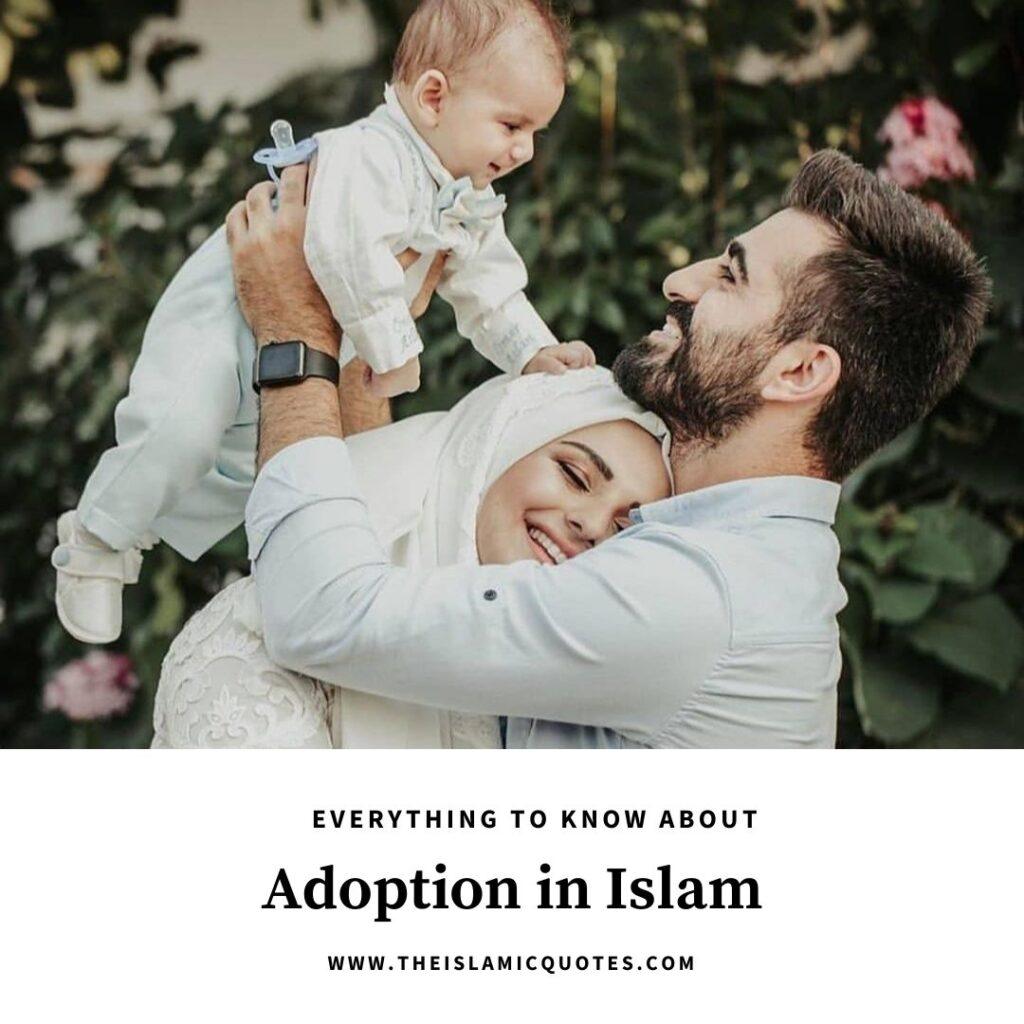
5. Kinship
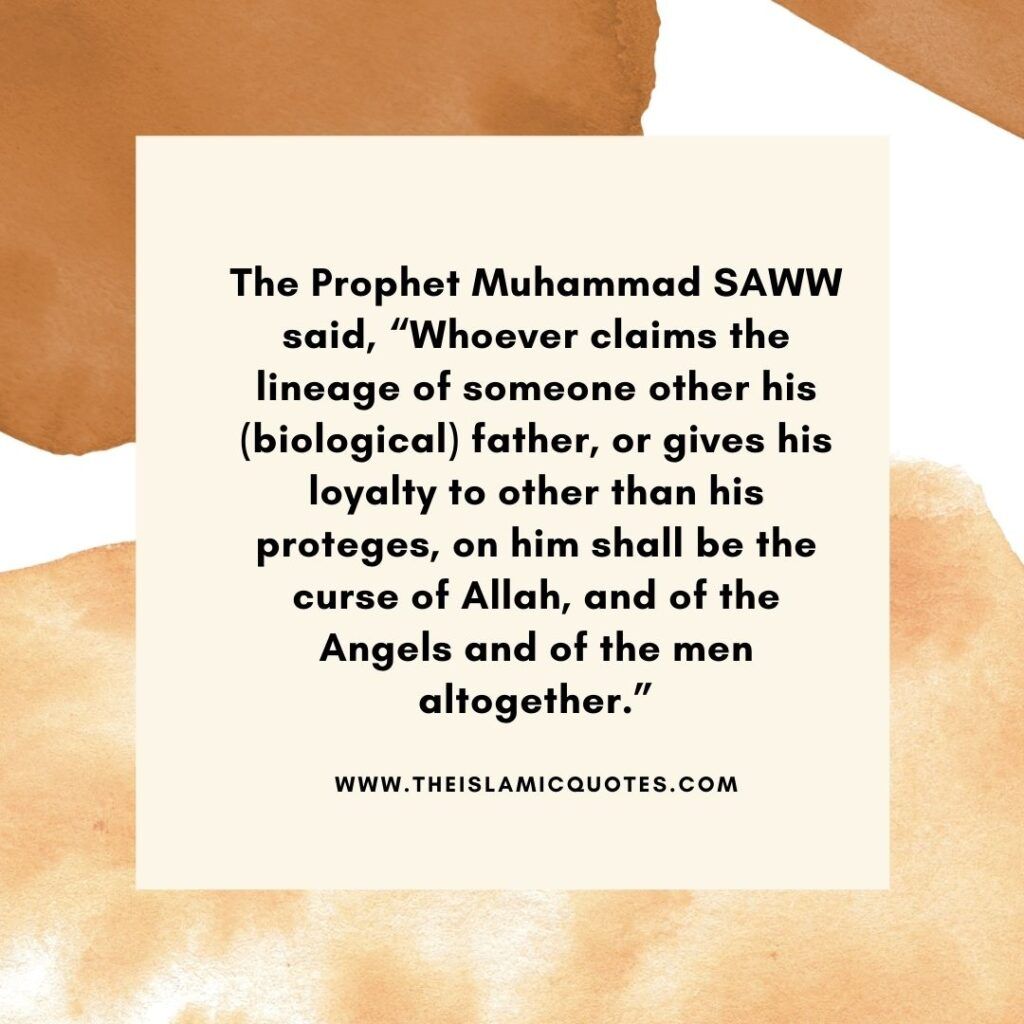
The reason and importance of discouraging traditional adoption practices are to protect the values and role of kinship in Islam. Islam places great importance on familial bonds and blood relations and the role of the family structure.
The Prophet SAWW was first adopted by his grandfather and then after his demise by his uncle. Islam emphasizes valuing relatives and a network of kinship. It also, therefore, emphasizes encouraging procreation and the upbringing of a sound Muslim generation to expand the family network.
This exists to strengthen family bonds and make finding needy and helpless relatives and orphans rare.
Conclusion
The Islamic practice of fostering and guardianship is aimed to make the process of adoption less confusing and complicated and prevent any unnecessary rifts. It prioritizes the rights and interests of the child rather than fulfilling the desires of childless parents. Above all, it aims at a holistic level, to fortify the family structure and make it sustainable and self-dependent.
